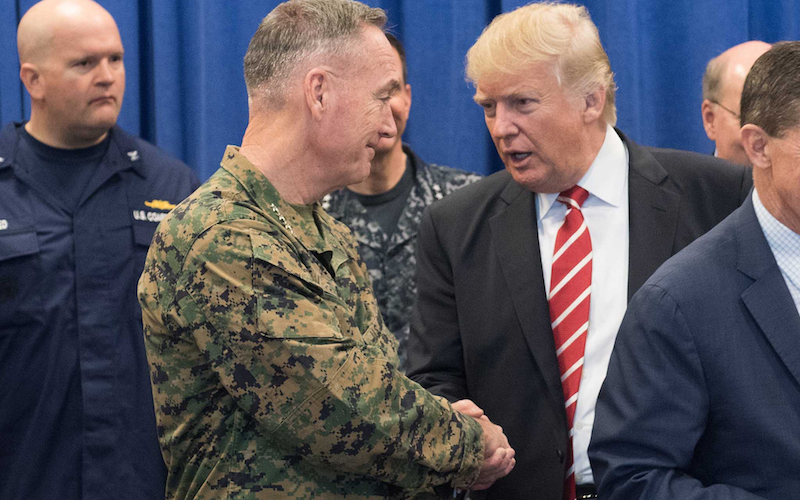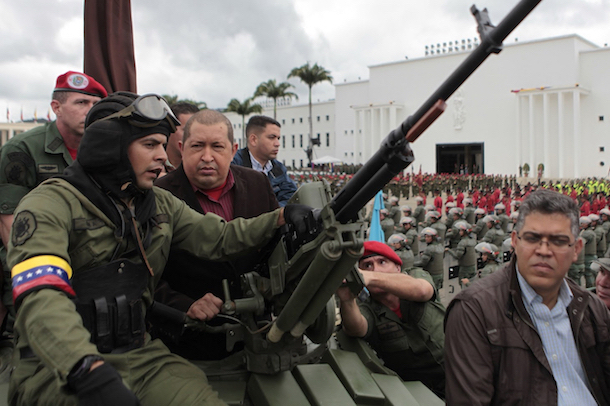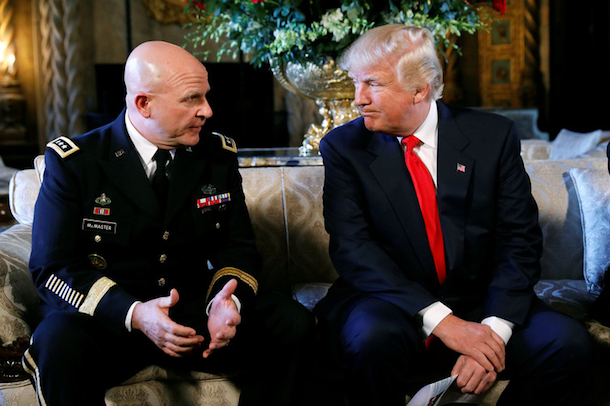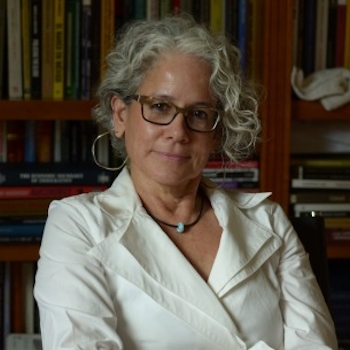
A Warning from Latin America: Trump is Opening the Door to Military Rule
America’s military is having its day in the sun.
On February 27, President Donald Trump published a proposed federal budget boosting military expenditure by 10 percent while drastically reducing funding for the arts, education, environmental protections and social programs. He also recently appointed three military men to high-level cabinet positions – retired general James Mattis as Secretary of Defence, General John Kelly as Homeland Security Secretary, and Lieutenant General H.R. McMaster as National Security Advisor.
This situation is unique in modern American history. Not since 1951, when president Harry Truman dismissed General Douglas MacArthur over the scope of the Korean war, has the possibility of conflict between political leadership and military interests been more likely.
The same can’t be said of Latin America and the Caribbean, with their long history of military rule. Interestingly, the region’s 20th century military dictatorships often resulted from the same dilemma North Americans now face: choosing between a strong military elite and an incompetent commander-in-chief directing a chaotic national administration.

Trump’s cabinet of generals
Trump’s recent military appointments have been celebrated by some Americans, in part because of the three officers’ indisputable intellectual and professional merits. Coming on the heels of Michael Flynn’s resignation as National Security Advisor due to his still-murky, pre-inauguration engagement with Russian officials, the three generals seem credibly patriotic.
They also bring a sense of stability and experience to the erratic Trump administration. From extemporaneous announcements about potentially withdrawing from NATO to dropping out of the Trans-Pacific Partnership trade agreement, actions supposedly taken with the purpose of assuring American security and sovereignty have instead made many Americans feel more vulnerable than ever.
Trump’s recent characterisation of mass immigration raids as a “military operation” required immediate public clarification by Department of Homeland Security chief Kelly that the “military won’t be used for deportations.”
Not that it was an improbable idea in the Trump era. As Kelly admitted in the same press release, there had indeed been a draft proposal to enlist 100,000 National Guard troops in the apprehension of undocumented immigrants in several states.
So the US finds itself at a delicate juncture, given its long history of civilian control over the country’s armed forces. If the current West Wing continues to issue unconstitutional edicts, it could create a foreign policy vacuum that could justify the military having a determinant role in geopolitical decision-making.
Your neighbours know
In much of the rest of the Americas, the military has often been a decisive political actor. In 1980, two-thirds of the Latin American population lived under military rule.
Notable examples include the case of General Rafael L. Trujillo, head of the Dominican army when he assumed power in 1931, whose 30-year reign was one of Latin America’s most resilient dictatorships. Then there’s Hugo Chavez, the comandante who staged a failed 1992 military coup before being elected president of Venezuela.
As documented (by A. Stephan, B. Loveman and T. Davies, and R. Diamint, among other thinkers), Latin American militarists valued authoritarian orders not simply because their democratic orders were weak, but because the arrangement benefited both political and military elites. They held power symbiotically and had each others’ backs.
Consider the dictatorship of Augusto Pinochet. His economic policies create an entrepreneurial military body that continued benefiting from massive national investment even after Chile transitioned to democracy, with many Chileans’ consent.

Our beloved military
The US armed forces, on the contrary, have long epitomised a bureaucratic or Weberian-type standing army. This emblematic American institution embodies professional discipline, technical training and high-tech warfare – all subordinated to, instead of a surrogate for, the civilian order.
But the arrangement is not infallible. In his seminal 1957 study, The Soldier and the State, Samuel Huntington reflected a paradox: civilian control requires keeping the military out of politics, but this goal can only be accomplished by “militarising the military, making them the tool of the state.”
Yet by putting the military in control of the state’s most powerful instrument – violence – it is enabled, even in a democratic regime, to undermine civilian control. “Civilian control decreases as the military become progressively involved in institutional, class, and constitutional politics,” Huntington wrote.
His warning now seems prescient. In announcing his proposed federal budget, Trump said he was fulfilling his pledge of “substantially upgrading all of our ‘beloved military,’ all of our military, offensive, defensive, everything, bigger and better and stronger than ever before.”
Latin Americans would find little surprising in this arrangement: the military’s increasing supremacy in the Trump administration reflects the relative weakness of the civilian and political counterweights that have historically ensured democratic control of defence in the US.
The new president is unprepared to address the strategic challenges posed by extremist groups engaged in non-conventional wars, his behaviour toward tried-and-true allies is unpredictable and his disdain for conventional structures such as NATO. So in come the generals.
Finding the right civil-military balance has been challenging in Latin America’s young democracies. In Ecuador’s 1992 presidential elections, 65 percent of the population said they would prefer a military coup over Abdala Bucaram’s victory.
In Chile, even after democracy was restored, the army kept (and still maintains) substantial economic resources and veto power in strategic matters. The same was true when the Dominican Republic transitioned into a post-dictatorial regime in mid-1960s; it took a long while to reduce the military’s autonomy.
But over the last two decades, thanks to incredible effort from committed citizens, politicians, academics and social movements, most Latin American and Caribbean countries have at last largely expanded civilian control over the military.
Brazil and Chile did so as their congresses fought to obtain accountability and transparency regarding the military budget. In Argentina, Peru, Uruguay, and Ecuador, civilian power grew more organically as part of the perennial battle to constrain the military’s proclivity to define its own missions and defence agendas as an expression of strength and autonomy.
US citizens can learn from their neighbours. All the warning signs are there, and civilian control of the military cannot be taken for granted. America, you don’t know what you’ve got until it’s gone.
This article was originally published on The Conversation. Read the original article.

